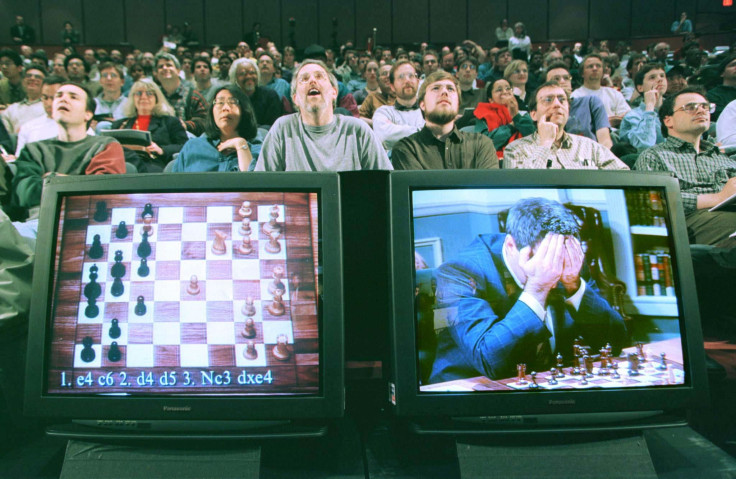AI Better Than You At Games: From Deep Q To Deep Blue, And Everything In Between

Artificial intelligence may lead to our destruction one day, but before the machines gain sentience, let's appreciate some interesting advances being made in that field. Researchers love developing AI through the playing of games, as they provide a great way for these programs to learn and perform better over thousands of contests and scenarios. Before "welcoming our computer overlords," to quote Ken Jennings, let's take a look at AI programs that are unbeatable at their respective games.
Deep Q-Network
Google Inc.'s algorithm called a deep Q-network, or DQN, performed exceptionally well with several Atari classics, including "Boxing," "Breakout" and "Space Invaders." The Deep Q-network learns from its mistakes and can adapt to random or unforeseen events. The Google DeepMind developers mimicked how a human brain learns and stores information by training the algorithm with stored events, a process they call "experience replay." It is similar to the way we recall recent events while we sleep, and DQN employs it to teach itself new strategies. The deep Q-network learned some really interesting strategies that it used to record maximum scores in "Breakout" and "Video Pinball" -- but the algorithm finished far behind human competitors when it came to "Asteroids," "Montezuma's Revenge" and "Ms. Pac-Man."
Deep Blue
AI’s most successful early form in terms of publicity, Deep Blue was a chess-playing computer developed by IBM that beat world champion Garry Kasparov in a controversial six-game rematch in 1997. The previous year, Deep Blue won one game, but lost the match. In the rematch, Deep Blue won two games, Kasparov won one game, and there were three draws. Accusations of cheating arose in connection with the event, but IBM has denied those claims. Meanwhile, Deep Blue retired after defeating Kasparov.
Watson
IBM followed up its success with Deep Blue with the supercomputer Watson. The AI was developed to answer "Jeopardy" questions: It used machine learning and automated reasoning to improve its accuracy. Watson faced its biggest test in 2011 when it challenged past "Jeopardy" champions Ken Jennings and Brad Rutter. The humans were no match for Watson, and it beat both competitors in two matches, winning $1 million that was donated to charity. Writing for Salon, Jennings describes the event and how Watson's strategies were similar to the ones he developed for the show. The biggest difference is Watson does not understand pressure and does not get rattled the way a human would when answering a question wrong. Today, Watson is at work in the health-care industry, as well as the finance and research fields. At Memorial Sloan Kettering Cancer Center in New York, Watson is being used to help doctors make treatment choices.
Cepheus
The University of Alberta's Computer Poker Research Group developed an unbeatable AI when it comes to heads-up limit Texas hold 'em poker. "It was trained against itself, playing the equivalent of more than a billion, billion hands of poker. With each hand, it improved its play, refining itself closer and closer to the perfect solution. The program was trained for two months using more than four thousand [central processing units] each considering over six billion hands every second! This is more poker than has been played by the entire human race," the researchers explained. Think you can beat Cepheus? You can play against Cepheus here.
Chinook
The University of Alberta previously solved the game of checkers. Chinook was the first AI program to win a man-machine world championship when it won in 1994. You can play against Chinook here.
© Copyright IBTimes 2025. All rights reserved.






















